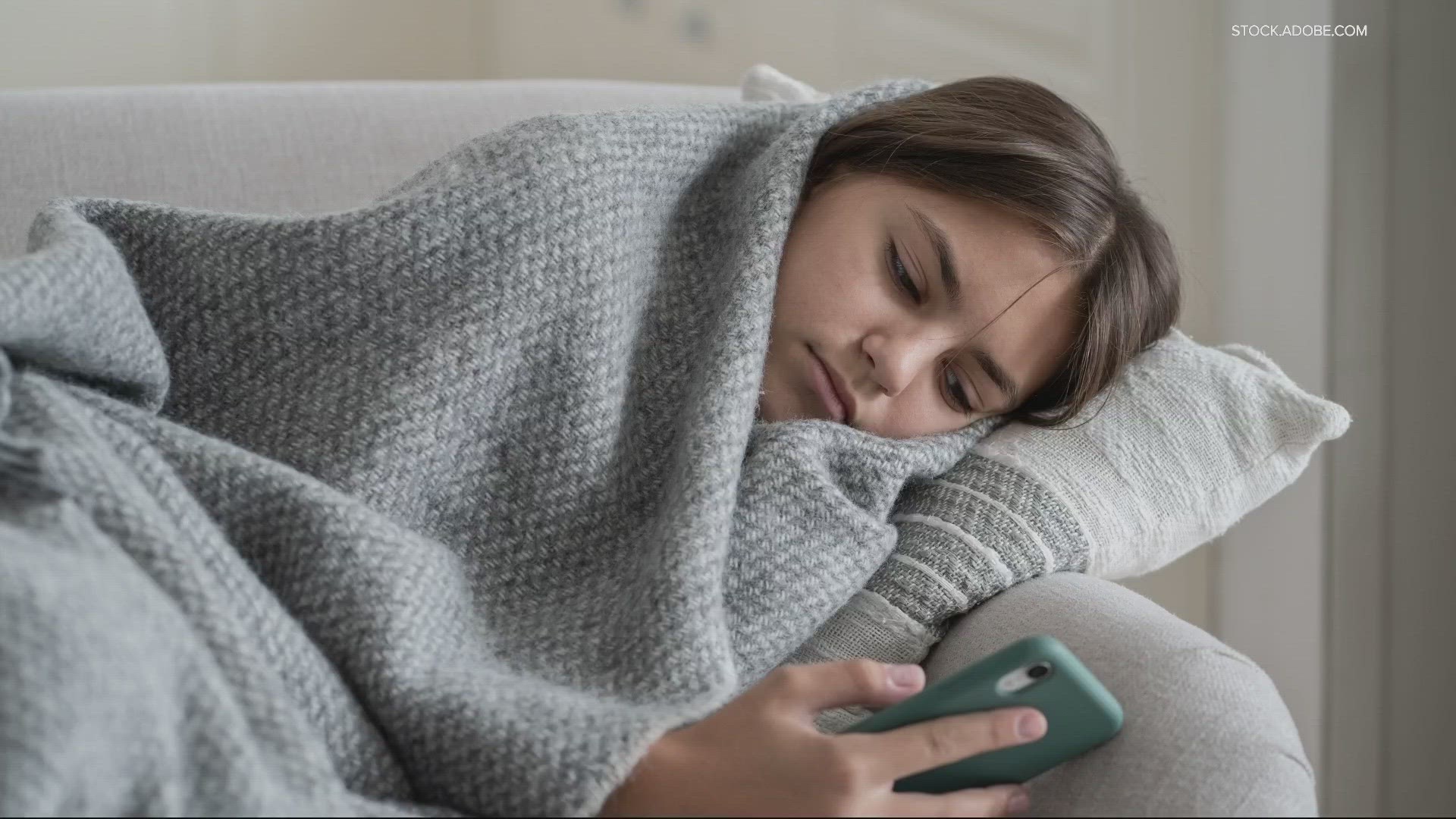EUGENE, Ore. — A new University of Oregon study found that the language teen girls use in text messages and social media apps, like TikTok and Snapchat, is linked to day-to-day changes in their moods.
"Our interest is in trying to find ways that we can detect who we should be helping a little bit earlier," said Nick Allen, director of the UO’s Center for Digital Mental Health
Allen is one of the psychology professors behind the new study that reviewed over 22,000 messages between 30 girls, ages 11 to 15, in Eugene.
"What we were able to find with this particular study was that these patterns of language actually reflect people's day-to-day moods,” said Allen. “So in other words, they can tell us a lot about whether someone is having a good day or a bad day."
All 30 girls were asked to rate their own moods daily and screened for depression and anxiety.
After the month long analysis, researchers found girls who used self-focused language — "I," "me," "my," and talk in the present tense — tend to be associated with "low" moods on days that are more difficult.
"So that tells us something about the psychology of the experience with depression. That's often when people are feeling depressed, they are very focused on themselves — often in a negative way,” he said. “And they're often feeling very stuck in the moment — like they can't see the future or something like that."
Allen said as kids become teenagers, peer support becomes increasingly important. The way teens interact with friends through their phones might more closely reflect their emotional state than what they share with parents at the dinner table.
"My general advice to parents is that young people are very privacy sensitive about what they do online,” he said. “So as a result, a lot of the time even with your best efforts, you won't know exactly what they're doing. They use apps you may have never heard of and it's very easy to keep things hidden from their parents. So really the ultimate goal is for the parents to develop a relationship with their child."
The research also found that longer text messages, regardless of context, also pointed to girls feeling "low." Teen girls that used "past tense" language reported higher overall moods.

